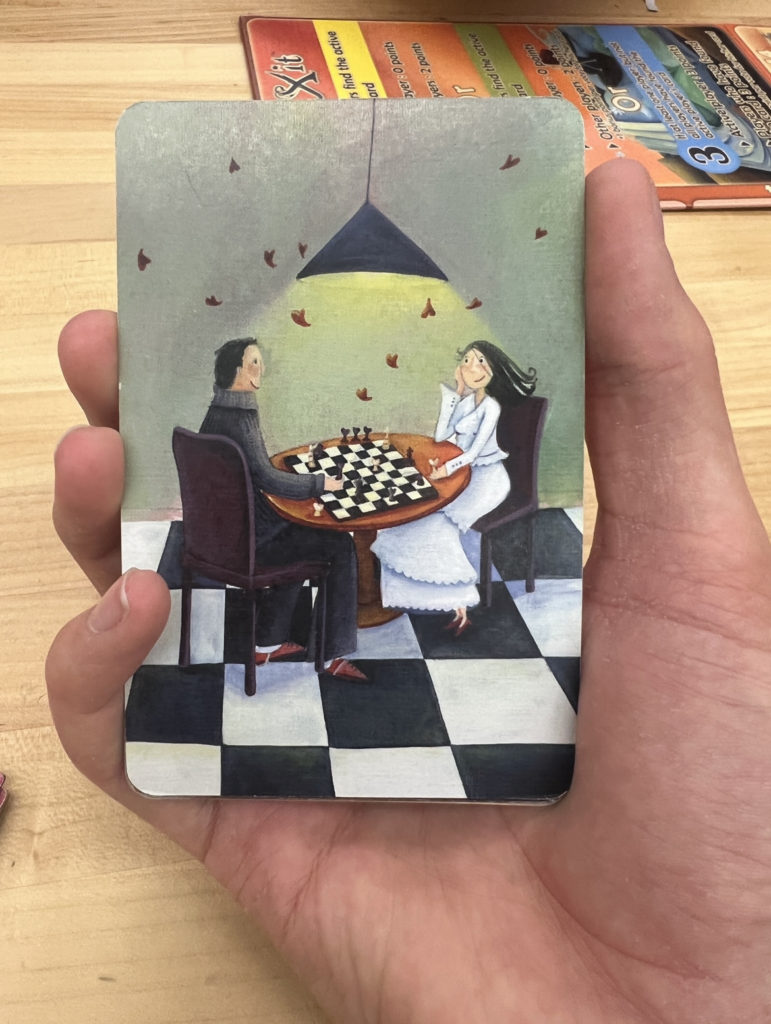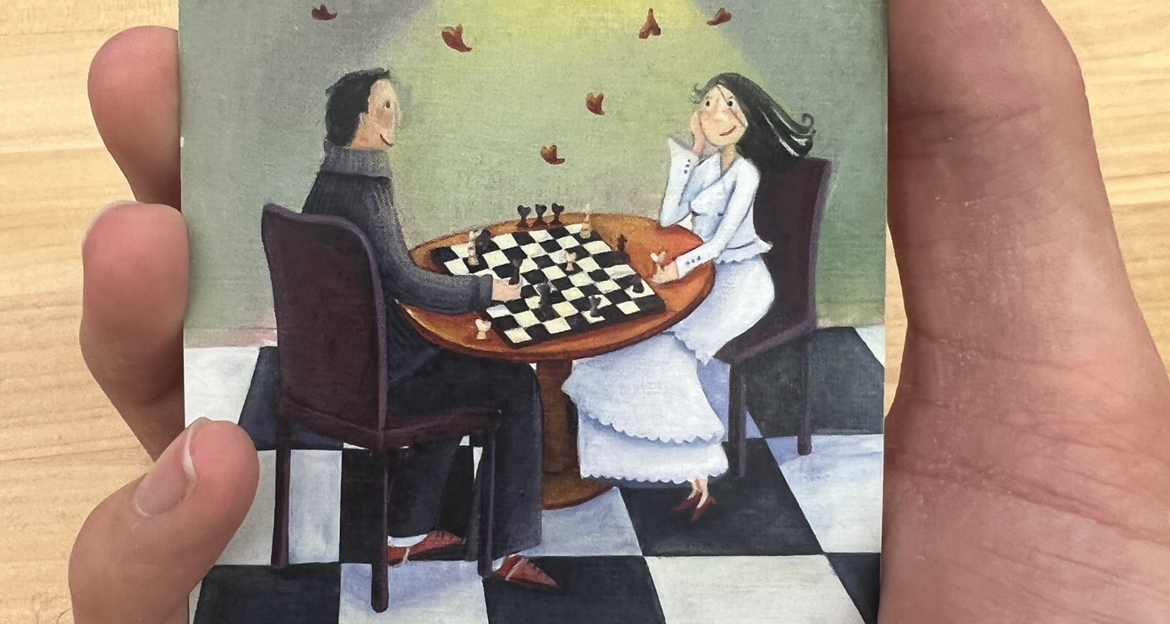
Not gonna lie, I sucked at this game. I didn’t understand it at first, but with trial and error, I eventually got the swing of the game and how to play it. Regardless, I still did horribly and was stuck in last place.
Dixit is a card game where each round, a player chooses a card to play, giving a brief hint describing the card so that other players may guess it. The other players too place a card of their choice in an attempt to confuse other players in their goal of finding the described card. Points are awarded through voting. If no one guesses the originally described card, the describer gets 0 points while all the other players get points, forcing you to not make your description too vague so that no one will guess your card. If you successfully trick others to vote for your card as a non-dealer, you get points. The player who attains 30 points first wins.
This game was effective in that you had to truly give hints about what your card might be while also not giving it all away in order to garner more points. Such an awarding of points pushes the players to critically think about what they’ll say to describe their card. An inside joke? A hyper-specific pop culture reference? A color? This game pushes its players to experiment with the cards they choose and the descriptions they give to help make themselves stand out from the other players’ cards while also maintaining some vagueness. This point system pushes for the formation of logical attributions to the card the describer placed by the other players. Such attributions can be based on the describer’s personality, actions, and speech. (I will note that the more you know the people you are playing the game with, the more likely they can understand inside references in your hints which make it easier for them to decide your card based on your description and personality).
An issue with such descriptions, however, is that if you don’t know the people you are playing with as well while they are familiar with each other, an in-group vs out-group relation may be accidentally created, rendering those in the out-group a more difficult gaming experience. Thus, I believe this game is best suited for either an ice-breaker activity for those who don’t know each other as well or an activity for those who know each other very well. I do not recommend Dixit for groups that lay in between.
I am confused about one aspect of the game, however. The fantasy aesthetic that the game employed was nice to the eyes (although some cards were ~unique~), but I feel like the theme didn’t really have much of an influence on the game. You can replace the theme with any other theme, and it would still play essentially the same. Perhaps one reason that a fantasy aesthetic was employed may be due to the vagueness of the genre, making the cards more cryptic to other players. Again, however, I am unsure as to the choice of theme. It looks pretty though.
